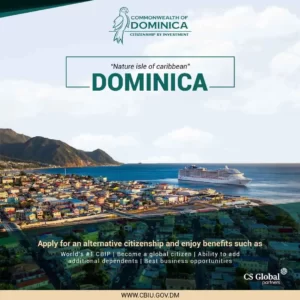Two climate-resilient shelters were authorised by the government of Dominica as the nation aims to become the first climate-resilient country in the world.
On Wednesday, 25 May 2022, the commissioning ceremony took place in Castle Bruce and Jimmit. The commissioning of these shelters came before the 2022 Atlantic Hurricane Season that initiated from 1 June onwards.
While summarising the importance of the shelters, Roosevelt Skerrit, Prime Minister of Dominica, said that these shelters would boost the response of the country towards tackling natural disasters and help in building resilience against Tropical Storms and Hurricanes.
PM Skerrit also highlighted that the government of Dominica has been making strategies to place the country in a good position in terms of resilient infrastructure since the nation witnessed the devastation in 2017 due to Hurricane Maria.
The government has been trying continuously to build a new, strong country that will resist Hurricanes and Storms’ ravage. The building of these shelters began in mid-September 2020.
Moreover, he stated that these establishments would improve the Hurricane and disaster preparedness of the country and enable them to become resilient.
The total price of building these Hurricane shelters is around $32 million. Jimmit and Castle Bruce are the ones costing 18 million and 14 million.
As per the government, the emergency shelter in Jimmit has the capacity to shelter around 500 and Castle Bruce will provide shelter to about 300 individuals.

The European Union (EU) financially assisted the government of Dominica in its effort to build climate-resilient shelters which can withstand any natural calamities.
Prime Minister Roosevelt Skerrit also stated that Dominica will be getting assistance from the European Union to build additional emergency shelters in Kalinago Territory, Grand Bay, Portsmouth, and La Plaine. He also stated that regional centres will be constructed in Marigot Western area.
Besides this, the Citizenship by Investment Programme of Dominica is helping the country build back better as the majority of development projects are supported by the country’s CBI Programme. The government of Dominica is heavily investing in socio-economic growth and constructing climate-resilient homes, roads, bridges, schools, hospitals, as well as the international airport using the funds generated through the CBI Programme.
The citizenship by investment programme has been working as a catalyst for the development activities in Dominica. Launched in 1993, it is the world’s fastest, safest, most secure and transparent economic citizenship programme in the world and is recognized for its multi-layered due-diligence checks on applicants.
The CBI Programme of Dominica is ranked number one in the world for five consecutive years by the CBI Index published by the Financial Times’ Professional Wealth Management (PWM) magazine.
The government of Dominica emphasizes its applicants’ overall integrity and ensures the applicants’ credibility by hiring renowned independent third-party agencies to perform due diligence checks. The comprehensive scrutinization helps ensure that only the people with outstanding character are accepted as economic citizens in the country.
The candidates who are interested in applying for alternative citizenship of Dominica can invest through two investment options – Economic Diversification Fund (EDF) and Real Estate.
Economic Diversification Fund (EDF) – The applicants can apply for the alternative citizenship of Dominica through EDF. This fund option provides assistance to socio-economic initiatives, including the construction of climate-resilient homes, health centres, schools, playgrounds, and more.
Minimum Investment: USD 100,000
Real Estate – The applicant has to purchase a Government-approved property to invest under the real-estate option.
Minimum investment: USD 200,000
Dominica, also known as the Nature Isle of the Caribbean is a land with beautiful and mesmerizing nature gems. Dominica is one of the best travel destinations with 365 rivers, unnumbered waterfalls and the world’s second-largest hot spring – the boiling lake.
Over the years, the country faced massive destruction caused by multiple natural disasters, including Tropical Strom- Erika, Hurricane Irma and Hurricane Maria.
The category five hurricane Maria damaged 90 percent of the country’s infrastructure and changed its entire fate.
After this tragedy induced by Hurricane Maria, PM Roosevelt Skerrit pledged to make Dominica the “world’s first climate-resilient nation”, which led to the establishment of the Climate Execution Agency for Dominica (CREAD). Following this, the Cabinet of Dominica gave a green signal to the Disaster Resilience Strategy as an Annex to the Climate Resilience and Recovery Plan (CRRP).
